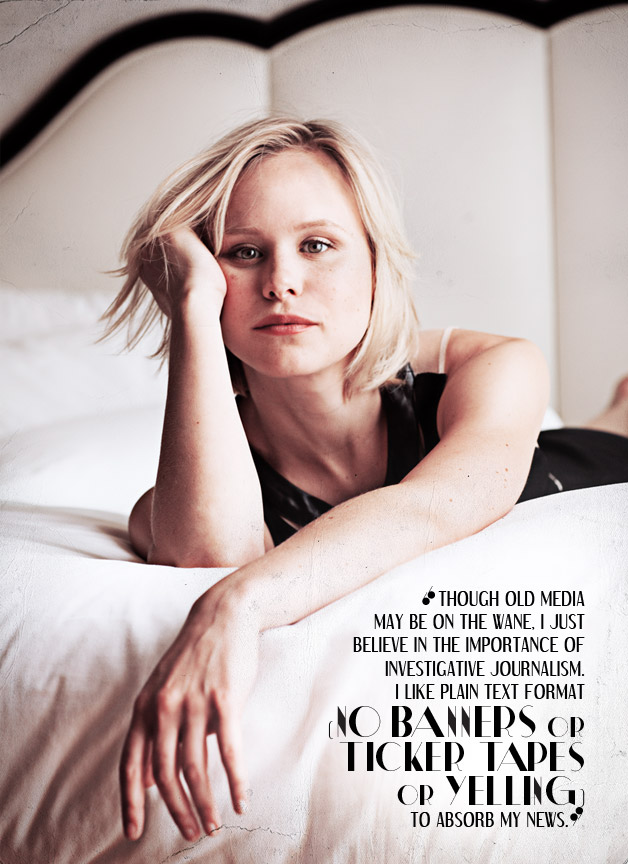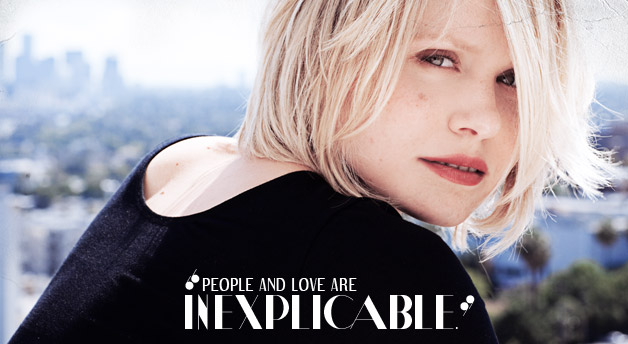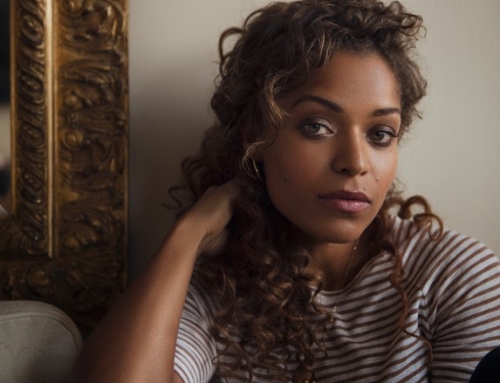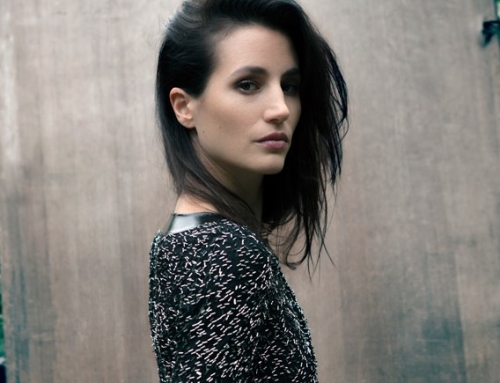Nice…super nice — some might say “Canadian nice” — is the best way to describe Toronto-born actress Alison Pill upon first impression. And then she speaks, and shares things like how she prefers print to broadcast journalism, being partial to a “less distracting picture” of current events. Or, she mentions in conversation how the Canadian film and television industry might benefit from “an element of protectionism” in order to nurture national talent and produce further industry growth, and it’s immediately apparent that there’s more than a peaches and cream disposition to the 27-year-old actress. Pill is packing some serious smarts in that pretty head of hers.
It’s no wonder Pill has become a favourite starlet amongst cerebral cinephiles over the last few years. In the role of the charismatic Zelda Fitzgerald in Woody Allen’s Oscar-winning film, Midnight in Paris (2011), the actress impressed audiences with her turn as the American author’s dynamo muse, after piquing both audience and critic interest with her diverse performances in acclaimed films including Scott Pilgrim vs. the World (2010), Milk (2008) and television dramas such as Golden Globe-winner, In Treatment. Not exactly the weighty resume one might expect from an actress who caught her first big break starring in a Disney film — Confessions of a Teenage Drama Queen (2004) — opposite Lindsay Lohan.
http://www.youtube.com/watch?v=McVXNEdi8K4
Rather than ride her newfound Disney stardom to a career making blockbuster teen films, Pill returned to New York and stage acting. Equipped with the experience of theatre credits including an off-Boadway production of Neil LaBute’s play The Distance From Here featuring fellow screen stars Anna Paquin (True Blood), Mark Webber (Save the Date) and Josh Charles (The Good Wife), Pill took on a lead role in a 2006 Broadway production of The Lieutenant of Inishmore, a black comedy by playwright Martin McDonagh. Her Broadway debut, the role earned her a coveted Tony Award nomination for Best Featured Actress in a Play.
On stage or screen, Pill posses something of a Diane Keaton-like charm: a cool sense of self-confidence, distinguished by an alluring femininity that doesn’t rely on bells and whistles. As Maggie Jordan in Aaron Sorkin’s The Newsroom on HBO, Pill plays up her girl-next-door magnetism with amplified vulnerability and snappy intellect.
While Maggie’s wholesome character has more than one character falling head over heels, it has others on the news team questioning her capability as a hardheaded journalist. But a fog is rolling in, shares Pill during out chat about season two of The Newsroom, and Maggie’s naivety is under the threat of life’s heavy hand. With season two of the series premiering Sunday, July 14th, we talk to Pill about all things Maggie-related, how she likes her news and what it means to be a Canadian actress working in Hollywood.

Audiences are eager for the season two premiere of The Newsroom, any highlights you can share with us? I’m sure the 2012 election and Occupy Wall Street really gave series creator and writer Aaron Sorkin something to bite into.
This season there is a lot about the pressure not only to be right, but also to break stories. The pressure of the 24-hour news cycle is intense, and dealing with commercial pressures, pressure from sources, as well as the obligation to the public to deal in fact means that choosing to air a story is never simple. We show the newsroom dealing with all of this, and also what happens when a story is proven false.
Do you ever get a bit of an adrenaline rush from the narrative and momentum of your fictional newsroom?
I do get excited by reading certain elements of the plot in a script, [but] once we’re shooting, it becomes so highly technical that I don’t really think about it.

Impossible to get too carried away with all the cameras there.
As fun and thrilling as it is to do, I also don’t pretend that my job is really like that of a TV news producer. My own stakes take place with 20/20 hindsight and the reflection of a world a year and a half in the past.
In terms of how you prefer your news, I hear you’re more a print news type than broadcast. Why’s that?
I like long-form journalism best because I get a clearer, less distracting picture. Though old media may be on the wane, I just believe in the importance of investigative journalism. I like plain text format (no banners or ticker tapes or yelling) to absorb my news.

I love the character posters for this season. Did the actors have any input on their characters’ quotes?
We didn’t have any input on the posters. I think the phrases used on the posters are more to do with a general audience in mind, and less to do with a specific character.
Does the storyline in season two play into Maggie Jordan’s quote: “We’re going to dispel the idea that there’s something wrong with me,” at all?
This season, doubts continue about Maggie’s competence, but for different reasons than last season. Season two is much darker for Maggie, and brings about an almost total transformation.
PAGE 1 >>











